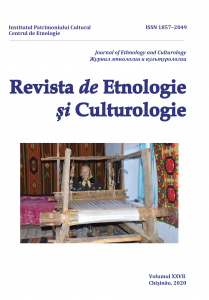Propagarea valorilor copilăriei sovietice şi formarea unei noi identităţi în RSS Moldovenească (1944-1961)
Propagating the values of Soviet childhood and forming a new identity in the Moldavian SSR (1944–1961)
Author(s): Adrian DolghiSubject(s): Cultural history, Ethnohistory, Social history
Published by: Institutul Patrimoniului Cultural al Academiei de Științe a Moldovei
Keywords: Soviet childhood; values; education; ideology; distorted consciousness;
Summary/Abstract: The present article elucidates the Soviet models and values of childhood implemented in the Moldavian SSR in the postwar period, which served as basis for the formation of a new civic and ethno-cultural identity, foreign to the majority of the population – the “Soviet Man”. We consider the research of Soviet childhood important in order to understand the impact state and ideological institutions had on children, and what was the role of the institution of childhood in building a new communist society. We find that the educational system, the press and children’s literature, theaters and cinemas were used as ideological tools in the process of forming communist beliefs in the young generations and cultivating personal qualities specific to communists: discipline, faith to the party and leaders, subordination, collectivism, self-sacrifice for the communist cause, etc. Thus, in the post-war period in the Moldovan SSR, but also in the entire Soviet and socialist space, we can speak of an ”indoctrinated childhood”. The systemic inoculation of “communist values” has led to the distortion of the consciousness of the broad masses of the population, the formation of Soviet prejudices, stereotypes and totalitarian thinking – which is currently one of the main causes of the stagnation of democratic transformations.
Journal: Revista de Etnologie şi Culturologie
- Issue Year: XXVII/2020
- Issue No: 1
- Page Range: 12-20
- Page Count: 9
- Language: Romanian

